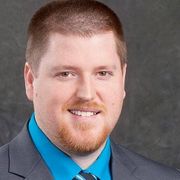3 Tips for Successful Estate Planning

As your life moves forward, you’ll likely gain more loved ones and assets, whether you welcome grandchildren into the family or purchase a second home during retirement. However, the more people and belongings that are a part of your life, the more you’ll have to account for in the estate planning process. If you’re feeling overwhelmed, use these three tips to help get you started.
What Should You Know About Estate Planning?
1. Get Used to Creating Lists
The first step to creating a comprehensive estate plan is to make a list of your assets, which includes everything from real estate properties and vehicles to electronics and baseball card collections. Once you’ve made a full list detailing the estate, you can make one for beneficiaries. Write down people you'd like to leave assets to, such as spouses, siblings, friends, significant others, mentors, and colleagues. You can present these to an estate planning advisor to ensure your bases are covered before the plan is finalized.
2. Don’t Leave Out Digital Assets

In this modern age, a surprising amount of your estate may not be physically tangible. It also includes social media accounts, such as Instagram® and Facebook®, as well as business websites and blogs. You may also have an online checking, savings, or investment account, or you could even have assets in the form of cryptocurrency.
All of these nonphysical assets can be left to beneficiaries of your choosing, whether through a will or trust. You can also add beneficiaries to transfer-on-death plans like 401(k)s, IRAs, and life insurance policy payouts.
3. Start Early & Update as You Go
Most people assume that estate planning should only become a priority when you’re nearing your senior years. However, this process should be done as early as possible—even as early as your 20s.
Just because you aren’t married or don’t own a house doesn’t mean you can’t use an estate plan. You can still use the documents to make plans for your end-of-life care and choose a power of attorney should you become incapacitated unexpectedly. As you grow older, you can continue to update your estate plan as you hit certain milestones, such as when you get married, divorced, or sell your home.
If you want to get started on the estate planning process, reach out to Andrew Thomas: Financial Advisor - Edward Jones in Bedford, IN. This financial advisor is experienced with wealth management and can help you make an effective distribution plan for your assets. In addition to estate planning, he also offers business, retirement, and investment services. Learn more about his skills online, or call (812) 279-4284 to schedule a consultation.
About the Business
Have a question? Ask the experts!
Send your question

